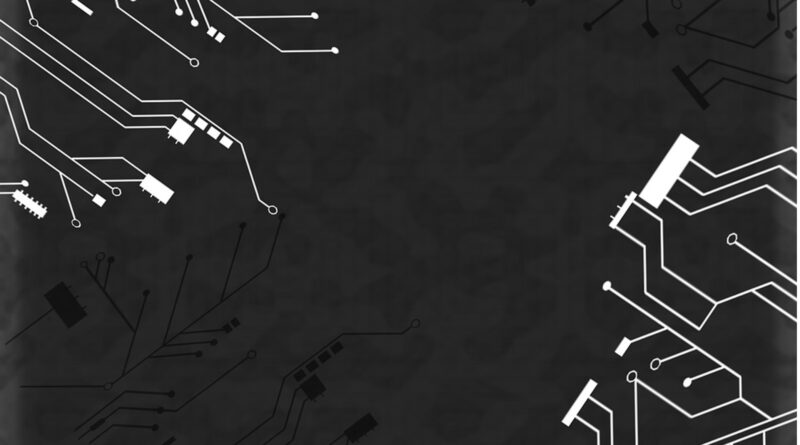Communities, Conversations, & Care: A New Model of Archiving
Communities, Conversations, & Care: A New Model of Archiving
Chern Li Liew and Ailsa Lipscombe
We often think of “care” in the archiving context in terms of objects (artifacts, records, documents). GLAM institutions (galleries, libraries, archives, and museums) have a responsibility to protect valuable items with significant social, cultural, and heritage value, and to preserve important information for current and future generations. These institutions work with care to make sure that knowledge is not lost. But what can we learn by turning our attention towards the communities whose knowledges we care for? How might adopting an attitude of care encourage us to look after people and not only their objects? Along this line, how can we change our policies and practices accordingly?
We are exploring these questions in dialogue with Māori users of digital collections of mātauranga Māori (Indigenous knowledge) in Aotearoa (New Zealand). This work requires calling attention to the elephant in the room: inherited colonial systems and their ongoing impact. To understand how Indigenous communities use archives, and to make sure GLAM institutions can best support them as they do so, necessitates recognizing how archives have not always extended their attitudes of care towards all communities equally. Our research builds on the work of scholars like Kirsten Thorpe, who has spoken extensively of the ways archives in Australia have harmed Indigenous communities. In many instances, harm occurs even while cultural heritage is preserved. Thorpe’s research, alongside our own, reminds us that caring about knowledge is not the same as caring for knowledge holders and knowledge owners.
—In reevaluating archiving practices of community engagement, how might an attitude of care encourage us to look after people and not only their objects?—
We believe that most effective way to make sure GLAM institutions are responsive to community needs is to center dialogue in every step of the archiving process. Community engagement based on meaningful and impactful dialogue is key. Historically, “engagement” has typically been addressed through one-off consultations: led by organizations who wish to share their strategic plans with interested or invested communities and to create a space to answer community questions. But much is lost when engagement is approached in this manner as a one-time consultation. In our research, we advocate for collaborative and ongoing dialogue as a vital way to learn from community partners, while being responsible to such communities. Dialogue, we argue, can and should be understood as a form of interpersonal care.
 In our current research project, we are analyzing this relationship between dialogue and care as a means to sincerely practice community engagement. As we do this work, we have identified three primary values that are continuing to guide our research, and that we hope can help transform engagement between GLAM institutions and Indigenous communities in global contexts. These are relationality, responsibility, and respect, and we introduce each of them briefly in the following paragraphs.
In our current research project, we are analyzing this relationship between dialogue and care as a means to sincerely practice community engagement. As we do this work, we have identified three primary values that are continuing to guide our research, and that we hope can help transform engagement between GLAM institutions and Indigenous communities in global contexts. These are relationality, responsibility, and respect, and we introduce each of them briefly in the following paragraphs.
Relationality is a way to speak about relationships. It is a way of understanding the social aspects of how knowledge is formed and shared among individuals and communities. As researchers working predominantly in the digital sphere, we believe that relationality highlights the actions of sociable individuals that are fundamental to contemporary knowledge stewardship. How people behave—online, as in person—tells us a lot about what is important to them and what their goals and wants are. Significantly, people do not act alone. Centering relationality is therefore a way to understand what kinds of interactions are already occurring within GLAM institutions. It is also a way to understand how new kinds of interactions can cultivate trust between users/communities and organizations, and can establish care for knowledge holders and owners.
We build on the importance of community engagement with our second principle: responsibility. We believe this is critically achieved by reframing our work in GLAM institutions from management to stewardship. Management conveys unequal distributions of power between users (those accessing knowledge) and organizations (those “managing” knowledge). On the other hand, stewardship speaks of ethical and caring collaborations that are gracious and mutually beneficial. One way to responsibly center collaboration is for organizations and researchers to prioritize co-design processes. In doing so, community engagement can guide institutional practices. Organizations become responsible to their community partners, adapting policies to meet community needs and desires. Ethical engagement is responsibleengagement that is motivated by care.
Finally, at the end of the day relationality and responsibility come down to questions of respect: for knowledge and knowledge holders and owners. As researchers working with and within the Aotearoa (New Zealand) context, we prioritize respect by being led by the te ao Māori principle of manaakitanga, or “hospitality.” Manaakitanga is a powerful reminder of the positive potential of digital archives to care for community partners by acting with warmth, kindness, and sincerity. In thinking through manaakitanga, we make sure that as scholars, our responsibility is to create research environments that care for participants in ways that exceed our professional responsibilities and legal obligation. It is ultimately encouragement to work towards a future of Indigneous knowledge stewardship that is not merely responsive, but respectful. Elsewhere, we share in more detail our strategies for centering relationality, responsibility, and respect in the archiving context.
Thinking through relationality, responsibility, and respect is an opportunity to reimagine archival practices and partnerships. It is an invitation to center Indigenous values through community engagement and ongoing collaborations between institutions and Indigenous communities. Furthermore: we believe it is insufficient for institutional practices to reflect Indigenous values if Indigenous communities are neither made to feel welcome within archival spaces nor empowered to use them. In emphasizing relationality, responsibility, and respect, we hope to inspire knowledge stewardship practices that support responsive and respectful engagement. Our vision is to center and re-center caring-for-people as at the heart of digital archives, and in the relationships GLAM institutions build with their communities.
Cite this article in APA as: Liew, C.L. and Lipscombe, A. Communities, conversations, & care: A new model of archiving. (2024, February 13). Information Matters, Vol. 4, Issue 2. https://informationmatters.org/2024/02/communities-conversations-care-a-new-model-of-archiving/
Authors
-
Chern Li Liew is an Associate Professor in the School of Information Management at Victoria University of Wellington, New Zealand. She received her Msc in Information Science from Loughborough University, United Kingdom and her PhD from Nanyang Technological University, Singapore. Her interdisciplinary and cross-disciplinary research connects human-centred digital innovation, information sciences and, sociocultural and community informatics, with cultural heritage being one of her core domains of expertise. The overall aim of Chern Li's research is to contribute to the understanding of the potentials, challenges and impacts digital technologies have on the care and use of cultural heritage information and knowledges, and how digital innovation in GLAM (galleries, libraries, archives, museums) can contribute to cultural and social cohesion.
View all posts -
I am a Postdoctoral Research Fellow, specializing in intersectional engagement with sound and culture in both the digital and physical sphere. With the support of the Fulbright Association and Te Tūapapa Mātauranga o Aotearoa me Amerika, I graduated with a PhD in Music from The University of Chicago in 2022 with a dissertation that analyzes the various and intertwined ways vulnerable communities encounter and interpret sonic events during periods of crisis and medicalization. As part of this work, I developed a model of traumatic listening: a way of approaching intersectional, embodied listening habits during a time of crisis. Following graduation, I was appointed as a Postdoctoral Research Fellow in the School of Information Management at Te Herenga Waka – Victoria University of Wellington. This work brings together my interest in relational bonds and situated knowledges to explore the ethics of culturally responsible and responsive Indigenous archiving. My secondary areas of research interest include how time-consciousness is experienced through sound and within diverse bodies; how mediated voices are emblematic of complex relational desires and fears; how (mis)representations of Indigeneity on screen occur through sound; and how critical disability studies can meaningfully transform ethnographic praxes and inclusive pedagogy alike.
View all posts





